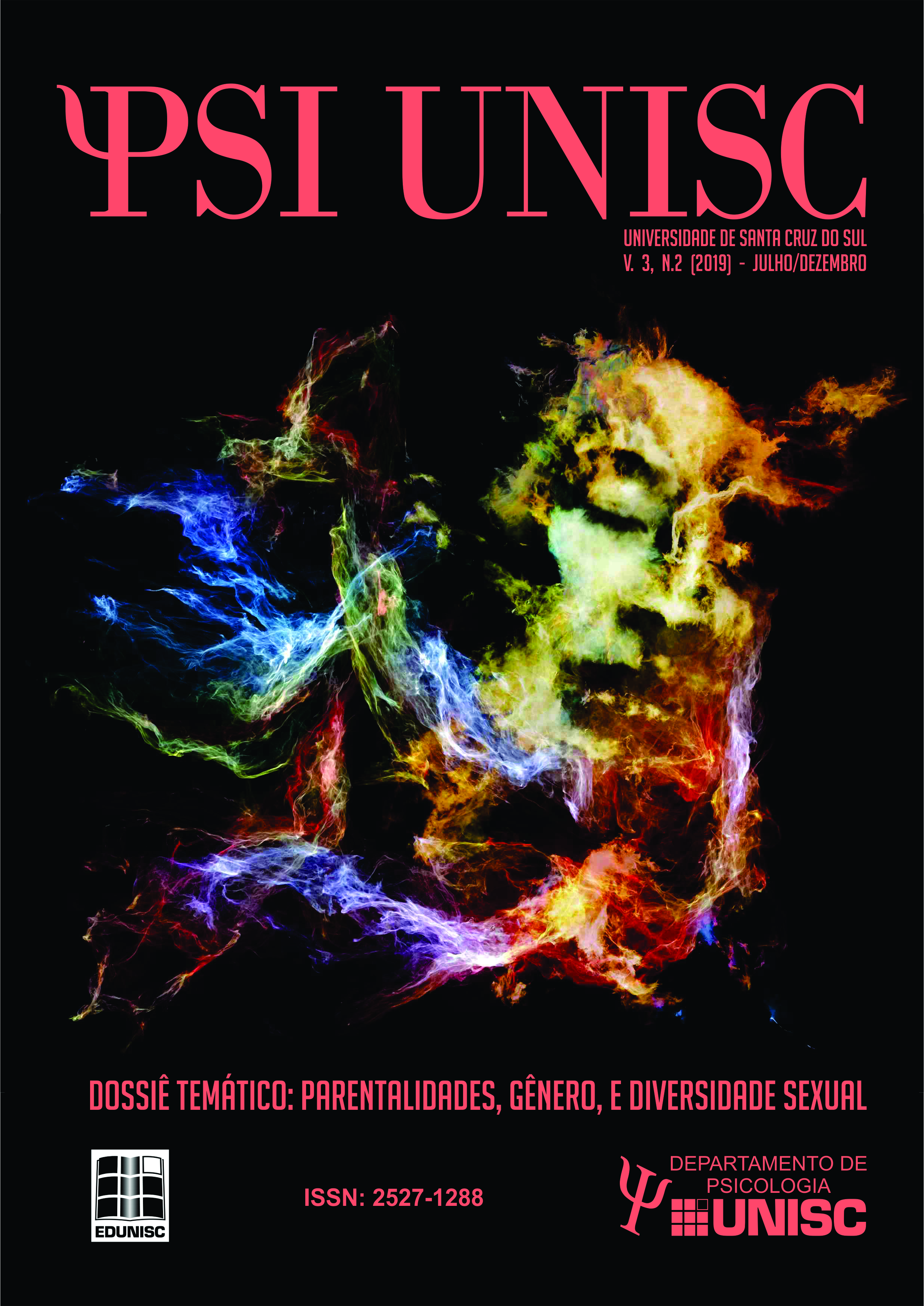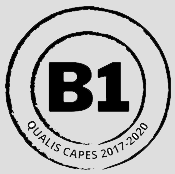Cynical Humorous Discourse at Contemporaneity: Historical Perspective and a Rhetorical Discourse Analysis
DOI:
https://doi.org/10.17058/psiunisc.v3i2.12520Keywords:
Humour, Cynicism, Contemporaneity, Rhetorical discourse analysis.Abstract
On the last decades, humorous discourse and its several mechanisms of operation – such as: irony, parody, mockery – has been spread within distinctive social and discursive practices (advertising, politics, fashion, education, among many others) becoming increasingly important as a form of mediating the relationships among subjects and between subjects and the world. Cynicism is another aspect relevant on the contemporary world, which through a cynical rationality produces two associated process: general ironization of the conducts and defence of immoral acts through moralist arguments. This essay connects both points in a particular way of operating within a general humour: the cynical humour. Hence, outlining the parts of the text, it contains: (1) initial commentaries about the idea of language shaped as discourse; the dialectical aspects of humour; and some explanation regarding the three stages scheme of rhetorical analysis discourse proposed by Simon Weaver; (2) a reasonably huge review about ideas of cynicism propagated in ancient Greece (kynismus) and in the contemporaneity (contemporary cynicism); (3) a relation of those ideas with the cynical humour, mainly related to those processes produced by a cynical rationality; (4) and finally, a Brazilian cynical humour example is analysed according to the methodological approach mentioned.Downloads
References
Attardo, S. (org.). (2014). Encyclopedia of humor studies. Los Angeles: SAGE.
Bergson, H. (2008). Laughter: An essay on the meaning of comic. Rockville: Arc Manor.
Billig, M. (2005). Laughter and Ridicule: Towards a Social Critique of Humour. London: SAGE Publications.
Blikstein, I. (1995). Kaspar Hauser ou A fabricação da realidade. São Paulo: Cultrix.
Brandão, H. (1995). Introdução à Análise do Discurso. Campinas: UNICAMP Press.
Chauí, M. S. (1994). O que é ideologia?. São Paulo: Brasiliense.
Critchley, S. (2002). On humour. London: Routledge.
Dinnuci, A. (2010). Diógenes, o cão: imagens, ditos célebres, comentários, epigramas. Prometeus – Filosofia em Revista, 5(3), 85-99. Recuperado de https://seer.ufs.br/index.php/prometeus/article/view/752
Geier, M. (2011). Do que riem as pessoas inteligentes?: Uma pequena filosofia do humor. Rio de Janeiro: Record.
Gruda, M. (2011). O discurso do humor politicamente incorreto e do escracho em South Park (Dissertação de Mestrado). Faculdade de Ciências e Letras, Unesp, Assis.
Gruda, M. (2015). Some critical reflections about politically incorrect humour at contemporaneity. Psychology Research, 5(8), 484-495. doi: 10.17265/2159-5542/2015.08.005
Gruda, M. (2017). O discurso do humor politicamente incorreto no mundo contemporâneo. São Paulo: Cultura acadêmica.
Justo, J. (2006). Humor, educação e pós-modernidade. In V. Arantes (org.), Humor e alegria na educação (pp. 103-112). São Paulo: Summus
Lipovetsky, G. (2005). A era do vazio. Barueri: Manole.
Lockyer, S., & Pickering, M. (orgs.). (2005). Beyond a joke: the limits of humour. New York: Palgrave Macmillian.
Minois, G. (2003). História do riso e do escárnio. São Paulo: UNESP.
Orlandi, E. (1999). Análise de discurso – Princípios & Procedimentos. Campinas: Pontes.
OXFAM. (2015). Wealth: having it all and wanting more. Oxfam Issue Briefing [Online]. Recuperado de https://www.oxfam.org/sites/www.oxfam.org/files/file_attachments/ib-wealth-having-all-wanting-more-190115-en.pdf
Palmer, J. (1994). Taking humour seriously. London: Routledge.
Parker, I. (2015). Psychology after discourse analysis: concepts, methods, critique. London: Routledge.
Piketty, T. (2014). Capital in the Twenty-First Century. Cambridge, MA: Harvard Universtity Press.
Pinto, Z. (1970). Ninguém entende de humor. Revista Vozes de Cultura, 3(64), 21-37.
Possenti, S. (2010). Humor, língua e discurso. São Paulo: Contexto.
Possenti, S. (2018). Cinco ensaios sobre humor e análise do discurso. São Paulo: Parábola.
Rojas, E. (1992). El hombre light. Buenos Aires: Planeta.
Safatle, V. (2008). Cinismo e falência da crítica. São Paulo: Boitempo.
Safatle, V. (2012). Amar uma ideia. In D. Harvey et al., Occupy: movimentos de protesto que tomaram as ruas (pp. 45-55), São Paulo: Boitempo.
Secretaria nacional de políticas para mulheres. (2018). Recuperado de http://www.spm.gov.br/
Silva, P., & Beer, P. (2011). Sobre o cinismo em um tempo de identificações irônicas. Trivium - Estudos Interdisciplinares, 1(3), 84-98. Recuperado de http://pepsic.bvsalud.org/scielo.php?script=sci_arttext&pid=S2176-48912011000100009&lng=pt&tlng=pt
Sloterdijk, P. (2012). Crítica da razão cínica. São Paulo: Estação Liberdade.
Traverso-Yepez, M. (1999). Os discursos e a dimensão simbólica: uma forma de abordagem à Psicologia Social. Estudos de Psicologia (Natal), 4(1), 39-59. doi: 10.1590/S1413-294X1999000100004
Weaver, S. (2011). The Rhetoric of Racist Humour: US, UK and Global Race Joking. Ashgate Publishing.
Weaver, S. (2013). A rhetorical discourse analysis of online anti-Muslim and anti-Semitic jokes. Ethnic and Racial Studies, 36(3), 483-499. doi: 10.1080/01419870.2013.734386
Žižek, S. (1994). Mapping ideology. London: Verso Books.
Žižek, S. (2006). Freud Lives!. London Review of Books, 28(10), 32. Recuperado de https://www.lrb.co.uk/v28/n10/slavoj-zizek/freud-lives
Žižek, S. (2008). In defense of lost causes. London: Verso Books.
Žižek, S. (2009). The sublime object of ideology. London: Verso Books.
Žižek, S. (2012). O violento silêncio de um novo começo. In D. Harvey et al., Occupy: movimentos de protesto que tomaram as ruas (pp. 15-25). São Paulo: Boitempo
Downloads
Published
How to Cite
Issue
Section
License
The submission of originals to this journal implies the transfer, by the authors, of the printed and digital publication rights. The copyrights for the published articles are those of the author, with periodical rights on the first publication. Authors may only use the same results in other publications clearly indicating this journal as the medium of the original publication. Because we are an open access journal, we allow free use of articles in educational and scientific applications provided the source is cited under the Creative Commons CC-BY license.




